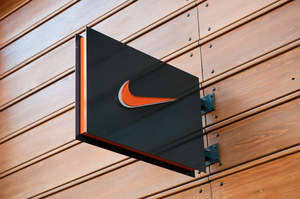LAWSUITS NEWS & LEGAL INFORMATION
California Donning and Doffing
Were you looking for California Unpaid Wages lawsuits?
By Jane Mundy
California employees have filed lawsuits alleging they are not properly paid for time spent donning and doffing personal protective equipment (PPE ) and other safety gear, special uniforms or other clothing required for their jobs. In addition to putting on and taking off work gear, such wage and hour lawsuits may also encompass allegations involving forced security checks, lengthy login sessions, or other unpaid work activities. As a result, employees say they have lost out on wages and overtime pay. Although the per-shift amount of money lost to unpaid donning and doffing time may seem small, over the course of a year it can add up to a significant amount, especially if it counts as overtime.
California donning and doffing refers to procedures in which employees are required to wear specialty gear—including uniforms, PPE and other safety gear, or certain tools and equipment—or undertake other work-related activities before they are allowed to begin their official work duties. In the case of specialty clothing, gear can take up to 20 minutes to put on and take off, and employers sometimes require employees to put on and take off the gear before and after work and at the start and end of meal breaks.
 People who work with computers might be required to undergo lengthy login and log-out procedures at the start and end of every shift and during breaks, but they may not be paid for that time. Employees might also be required to take part in unpaid team meetings or spend long hours waiting for security checks before they can leave a worksite.
People who work with computers might be required to undergo lengthy login and log-out procedures at the start and end of every shift and during breaks, but they may not be paid for that time. Employees might also be required to take part in unpaid team meetings or spend long hours waiting for security checks before they can leave a worksite.
The Supreme Court has ruled that employees should be paid for time employees spend involved in certain activities, if those activities are essential to the work being done. The courts also consider whether the employer or the employee benefits from the required safety gear. Although employees benefit from safety gear by being protected from job-related hazards, employers also benefit by paying less in employee sick time in the event employees are injured on the job.
Despite such ruling, employers can argue that their employee isn’t actually working. On the other hand, the employee claims--in many donning and doffing lawsuits—that any article of clothing (not only uniforms) or safety gear the employer must provide and has mandated in order for the employee to perform the job should be compensated by the employer. This means that time spent dressing and undressing should be on-the-clock.
Like other employment violations, donning and doffing is a wage and hour claim, like any off-the-clock work where the employee is expected to perform tasks before starting a shift and/or clocking out for the day. Like missed meal and rest periods, this task can add several minutes or more (think how long it takes to don a hazmat – hazardous materials—suit) a day.
There may also be a question of how much control the employee has in the circumstances surrounding donning and doffing. If employees are required to leave the safety gear at work, and are therefore unable to fully prepare for work while at home, they may be eligible for compensation.
Whether workers are entitled to compensation for time spent donning and doffing PPE has been subjected to litigation and plagued employers, especially those in the manufacturing industry, for years. As well, the federal standards may differ from state standards. Employees who regularly had to wear PPE and other health and safety equipment are now wearing new and additional types of equipment. Similarly, employees who never wore any safety equipment are now wearing such equipment.
When it comes to food safety, donning and doffing overtime prevails. For instance, six hourly meat processing employees of Tyson Prepared Foods, Inc. in Wisconsin filed an overtime class action claiming they are entitled to compensation for time they spend at the plant donning and doffing sanitary and protective equipment and clothing as required by Tyson. They also time spent walking to and from workstations after donning and before doffing these items.
The circuit court granted summary judgment to Tyson arguing that donning and doffing this gear is not compensable because it is not “integral” and “indispensable” to principal work activities of the employees. The employees appealed and the Wisconsin Appeals Court agreed with the employees. It determined donning and doffing constitutes “preparatory and concluding” activities that are “an integral part of a principal activity,” and therefore the donning and doffing time is compensable. Tyson Foods also operates in California, as does the Dole Food Company.
Last updated on
FREE CALIFORNIA DONNING AND DOFFING LAWSUIT EVALUATION
Send your California Donning and Doffing claim to a lawyer who will review your claim at NO COST or obligation.
GET LEGAL HELP NOW
GET LEGAL HELP NOW
California Donning and Doffing
 People who work with computers might be required to undergo lengthy login and log-out procedures at the start and end of every shift and during breaks, but they may not be paid for that time. Employees might also be required to take part in unpaid team meetings or spend long hours waiting for security checks before they can leave a worksite.
People who work with computers might be required to undergo lengthy login and log-out procedures at the start and end of every shift and during breaks, but they may not be paid for that time. Employees might also be required to take part in unpaid team meetings or spend long hours waiting for security checks before they can leave a worksite.The Supreme Court has ruled that employees should be paid for time employees spend involved in certain activities, if those activities are essential to the work being done. The courts also consider whether the employer or the employee benefits from the required safety gear. Although employees benefit from safety gear by being protected from job-related hazards, employers also benefit by paying less in employee sick time in the event employees are injured on the job.
Despite such ruling, employers can argue that their employee isn’t actually working. On the other hand, the employee claims--in many donning and doffing lawsuits—that any article of clothing (not only uniforms) or safety gear the employer must provide and has mandated in order for the employee to perform the job should be compensated by the employer. This means that time spent dressing and undressing should be on-the-clock.
Like other employment violations, donning and doffing is a wage and hour claim, like any off-the-clock work where the employee is expected to perform tasks before starting a shift and/or clocking out for the day. Like missed meal and rest periods, this task can add several minutes or more (think how long it takes to don a hazmat – hazardous materials—suit) a day.
There may also be a question of how much control the employee has in the circumstances surrounding donning and doffing. If employees are required to leave the safety gear at work, and are therefore unable to fully prepare for work while at home, they may be eligible for compensation.
PPE during COVID-19
In response to the COVID-19 pandemic, state and federal safety and health guidelines call for extensive use of personal protective equipment (PPE) in the workplace. Certain employers should scrutinize their policies on donning and doffing.Whether workers are entitled to compensation for time spent donning and doffing PPE has been subjected to litigation and plagued employers, especially those in the manufacturing industry, for years. As well, the federal standards may differ from state standards. Employees who regularly had to wear PPE and other health and safety equipment are now wearing new and additional types of equipment. Similarly, employees who never wore any safety equipment are now wearing such equipment.
Employer Steps to Mitigate Risk Donning and Doffing Claims
Donning and doffing claims are usually brought on a class-wide basis. Employers can take steps to mitigate the risk of claims, such as:- Scrutinize your donning and doffing policies, and make sure they require employees to don and doff extra equipment on the clock.
- If employees must obtain the new equipment at work, make sure they retrieve it after clocking in and return it before clocking out.
- Control when employees are donning, doffing, and retrieving the new equipment so they are not “on the clock” before they are supposed to be.
- If paying employees a flat amount of time or money to cover donning and doffing activities, make sure the flat amount is sufficient to cover the new equipment.
- Unionized facilities should review your donning and doffing agreement with the union to determine whether it addresses this issue.
- If employees have to clean or sanitize their own equipment, ensure that too is done on the clock.
CALIFORNIA DONNING AND DOFFING LAWSUITS
Donning and doffing wage and hour lawsuits allege that employees should be compensated for time spent involved in certain work activities and that compensation should either come in the form of having that time included in the regular workday or as overtime pay outside of the regular shift.When it comes to food safety, donning and doffing overtime prevails. For instance, six hourly meat processing employees of Tyson Prepared Foods, Inc. in Wisconsin filed an overtime class action claiming they are entitled to compensation for time they spend at the plant donning and doffing sanitary and protective equipment and clothing as required by Tyson. They also time spent walking to and from workstations after donning and before doffing these items.
The circuit court granted summary judgment to Tyson arguing that donning and doffing this gear is not compensable because it is not “integral” and “indispensable” to principal work activities of the employees. The employees appealed and the Wisconsin Appeals Court agreed with the employees. It determined donning and doffing constitutes “preparatory and concluding” activities that are “an integral part of a principal activity,” and therefore the donning and doffing time is compensable. Tyson Foods also operates in California, as does the Dole Food Company.
CALIFORNIA DONNING AND DOFFING LEGAL HELP
If you or a loved one has suffered similar damages or injuries, please click the link below and your complaint will be sent to a lawyer who may evaluate your claim at no cost or obligation.Last updated on
CALIFORNIA DONNING AND DOFFING LEGAL ARTICLES AND INTERVIEWS
Taylor Farm’s Don-Doff Deal is Off

Ninth Circuit Confirms Death of “De Minimus” Rule in California Wage and Hour Lawsuits

Too Hard to Eat Lunch? – That Cost Wal-Mart $6 Million


September 18, 2019
A proposed $5.3 million settlement by Taylor Farms Pacific Inc. to resolve claims that employees were not paid for donning and doffing and other California labor law violations was declined by a California federal judge last month, because the court “cannot simply rubber stamp a class action settlement.” READ MORE
Ninth Circuit Confirms Death of “De Minimus” Rule in California Wage and Hour Lawsuits

July 15, 2019
On June 28, the Ninth Circuit confirmed that, in lawsuits brought under the California Labor Code, even very small amounts of work time – measured in seconds, not minutes – must be counted and compensated. The opinion in Rodriguez v. Nike should put an end to latest employer-driven campaign to revive the federal de minimus standard in California labor lawsuits. READ MORE
Too Hard to Eat Lunch? – That Cost Wal-Mart $6 Million

June 26, 2019
Chelsea Hamilton and Alyssa Hernandez brought a class action California labor lawsuit against Wal-Mart, claiming that going through the mandatory security check took so much time and was so intrusive that they were left with less than their legally protected half-hour meal break. Taking feminine hygiene stuff out of their purses was embarrassing. Ms. Hernandez also said the break room was crowded and noisy. They were not prevented from taking the break, but they were discouraged out of it. In April, they won a $6.1 million jury award on behalf of Wal-Mart workers. READ MORE
READ MORE California Unpaid Wages Settlements and Legal News
READ MORE Employment Settlements and Legal News
READ MORE Employment Settlements and Legal News

READER COMMENTS
jay tapia
on